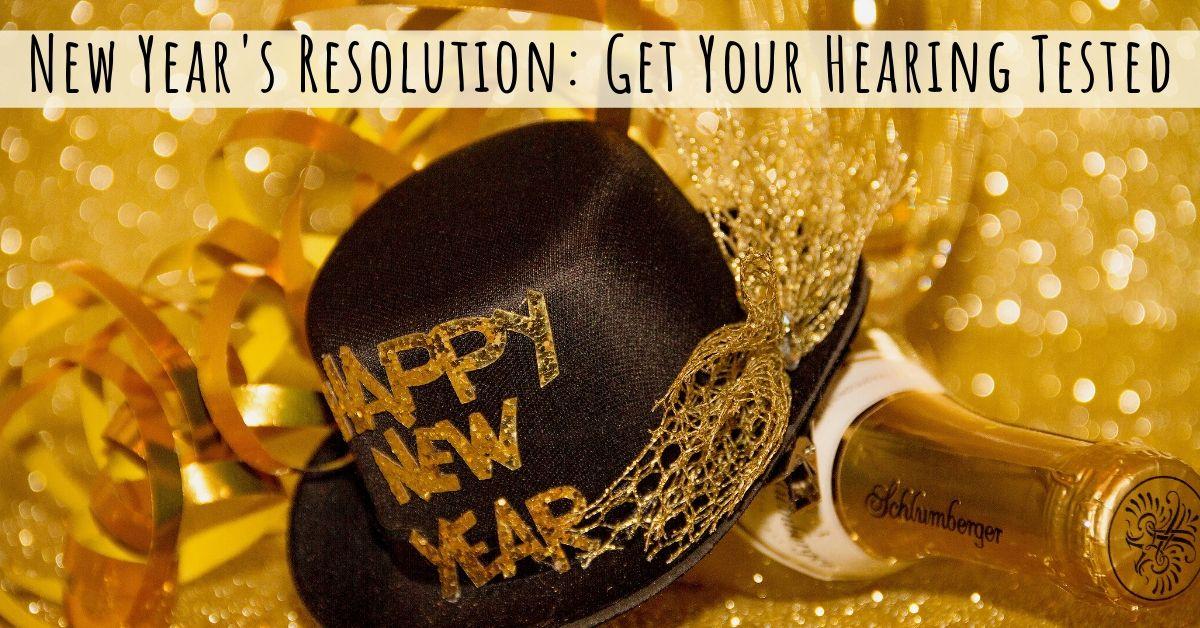No matter what happened in 2019, January presents a great new start! A promise to go to the gym more often, contact family more regularly and eat a little healthier. Perhaps you will have a regular medical exam, see your dentist more often or check your vision. We want you to add another resolution to the list here at Pacific Hearing Care – take an annual hearing test.
Hearing loss is more common than you would think:
- About 14% of Americans aged 45 to 64 years have a hearing loss of some kind.
- Around 30 to 40% of older people over 65 have trouble hearing.
- Adult men aged 20 to 69 are significantly more likely to report hearing loss than women of the same age.
- In the United States, roughly 28.8 million adults could stand to gain from the use of hearing aids. Unfortunately, less than 16% are doing so.
How do I know if I need a hearing test?
hearing loss is often seen as invisible as it progresses gradually. Most people fail to recognize that they are actually going through hearing loss because it’s not often a sudden event, so our ears are very good at adapting to our surroundings. That’s why it is important to be vigilant of the signs that indicate that one may have a hearing loss.
It is an indication that you have hearing damage if you have ringing in the ears, known as tinnitus.
Another red flag is a “full” feeling in your ear, or a muffled sound.
If you ask others to continually repeat themselves or have difficulty following conversations, you may also be experiencing a long-term hearing loss.
You may find it harder to identify your own hearing loss, but your loved ones will certainly notice your hearing loss before you. One could dismiss these suggestions, but before hearing loss gets worse, it is important to listen to their advice and take a test to see how much you could be damaged.
If you’re over 50, we recommend taking a hearing test annually. However, if you are experiencing any of these situations mentioned above, we advise you to take one as soon as possible.
A step by step guide to getting treatment for hearing loss
1. Schedule an appointment for a hearing test
Ask friends with hearing aids to suggest an audiologist. Look for a licensed hearing specialist working with a range of hearing aid brands instead of one. At Pacific Hearing Care, we partner with the world’s leading hearing aid suppliers and our team is here to guide you on your journey toward better hearing.
Take the tests
An extensive hearing test is performed and physical problems checked by the hearing specialist. Some common tests include: A pressure test (to check the eardrum); a sound test (to see how many pitches are heard); and a voice test (where you repeat sentences you have heard). The hearing professional then uses an audiogram to track the performance of your hearing by displaying your hearing ability on a graph. They are then going to suggest action based on your results. You will be referred to an ear, nose and throat (ENT) doctor if they see that it can be surgically corrected.
2. Decide if you want to try a hearing aid
Think carefully if your hearing specialist suggests a hearing aid. You may want to take some time to think before coming back with your thoughts. Hearing aids are an investment, but they are one of the most effective ways to help restore your hearing.
3. Take your time to adjust
If you decide to get hearing aids, congratulations! But remember that they wont work as you might expect. Unlike glasses that automatically correct your vision, hearing aids often do not work perfectly from the get go. Adjusting to hearing new noises and will take your brain some time.
4. Seek help from others
If you’re the lone person with hearing loss in your family or friends, ask your hearing professional about support groups you can join, or go on the website of the Hearing Loss Association of America to find a local chapter. Connecting with someone who recognizes what you’re going through is essential.

